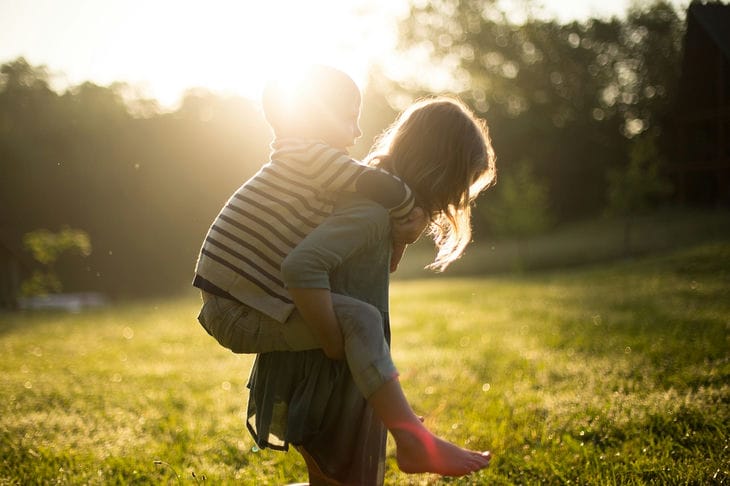In the hustle and bustle of everyday life, we adults often forget about the simple joys that are so natural for children.
Let's stop for a moment and look at the world through the eyes of a child.
Perhaps this will help us remember something important that we lost on the way to growing up.

The Art of Fast Switching
Remember how as a child you could get upset over a trifle, and then a minute later you would laugh at something funny?
Children have an amazing ability to quickly switch from negative emotions to positive ones. They do not get stuck in a bad mood for long.
Adults should learn this skill. When you find yourself in an unpleasant situation, try to consciously switch your attention to something pleasant.
It could be a beautiful view outside the window, your favorite music, or even a funny video on your phone. Don't let troubles ruin your day.
Practical application: Stuck in traffic? Instead of getting angry, turn on your favorite podcast or audiobook. Boring meeting? Try to find something interesting or useful in it.
Mistakes are a part of life
Children are not afraid to make mistakes. They fall, get up and try again. For them, every mistake is not a failure, but a new experience and an opportunity to learn something.
Adults are often paralyzed by the fear of making mistakes. We are afraid of looking stupid, afraid of criticism, afraid of failure. But it is precisely this fear that often prevents us from developing and trying something new.
Let's look at mistakes through the eyes of a child - as a natural part of the learning process. After all, even the most successful people in the world made mistakes on the way to their achievements.
Practical application: Scared of public speaking? Start small – speak up at a small meeting. Scared of starting a new hobby? Sign up for a trial lesson. Remember, no one expects you to be perfect on your first try.
Learn with joy
Have you ever watched a child learning to ride a bike? He falls, gets up, falls again – and all this with a smile on his face. Because for him, it’s not the result that matters, but the process itself.
Adults often approach learning as an unpleasant chore. We set ourselves strict deadlines, scold ourselves for slow progress, compare ourselves to others. And as a result, we lose all the joy of the learning process.
Let's remember the childish approach to learning. Study for pleasure, not for the result. Enjoy the process, celebrate small victories, don't be afraid to make mistakes.
Practical application: Want to learn a new language? Start by watching cartoons in that language. Mastering a new computer program? Challenge yourself to learn one new function every day, without the goal of reaching a certain level by a certain date.
Curiosity towards everything new
Children are natural explorers. For them, the whole world is a huge playground for discoveries. They do not divide things into "interesting" and "boring" in advance, but try everything.
Adults often limit themselves to the framework of their usual interests. "I don't like classical music", "I'm not interested in politics", "I'm a humanities student, mathematics is not for me" - how often do we hear such phrases?
Let's try to approach life with childlike curiosity. Don't reject new ideas and activities just because they don't fit into your self-image. Give something new a chance - you might discover an unexpected passion.
Practical application: Once a month, try something completely new to you. This could be a cooking class, a lecture on an unfamiliar topic, a new sport, or a visit to a museum you've never been to.
Openness to communication
Children do not divide people into categories. They can communicate with equal interest with their peers and with those who are younger or older. For them, the personality of a person is more important than his age or social status.
Adults often limit their social circle to people of their own age, profession or social status. We miss the opportunity to learn something new from people who are different from us.
Let's expand our social circle. Talk to a colleague who is much older or younger than you. Meet neighbors who, at first glance, are not at all like you. You will be surprised how interesting and enriching such communication can be.
Practical application: At your next office party or family celebration, try striking up a conversation with someone you don't usually talk to. Ask open-ended questions and listen with genuine interest.
Conclusion
Of course, we can’t (and shouldn’t) go back to childhood entirely. We have obligations, responsibilities, and experiences that shape our adult lives. But we can take the best of our childhood worldview and apply it to our own lives.
Try to look at the world through the eyes of a child for at least a day. Be open to new things, don’t be afraid to make mistakes, enjoy the little things, be curious and sociable. Perhaps this will help you not only become happier, but also discover new talents and opportunities in yourself.
Remember: childhood is not just a period in life, it is a state of mind. And it is available at any age, you just have to want it.








